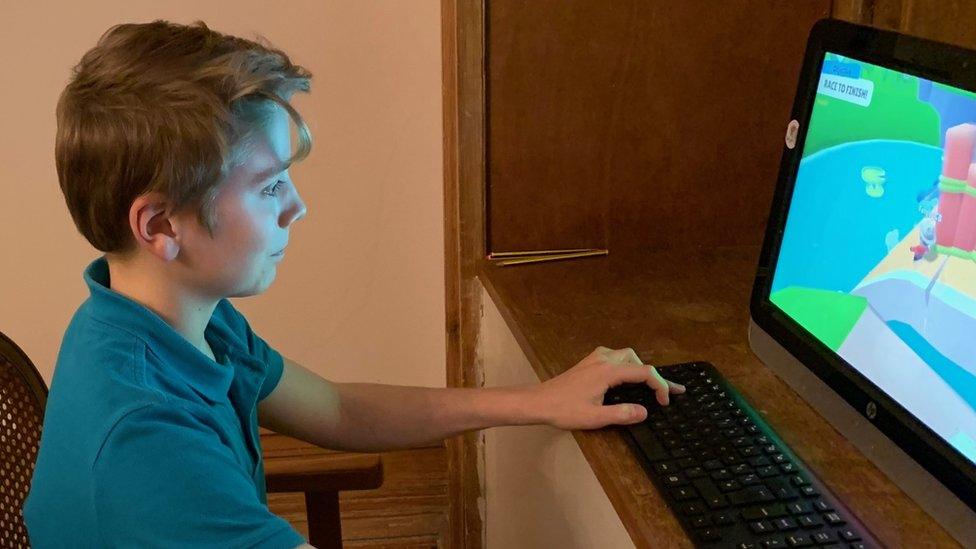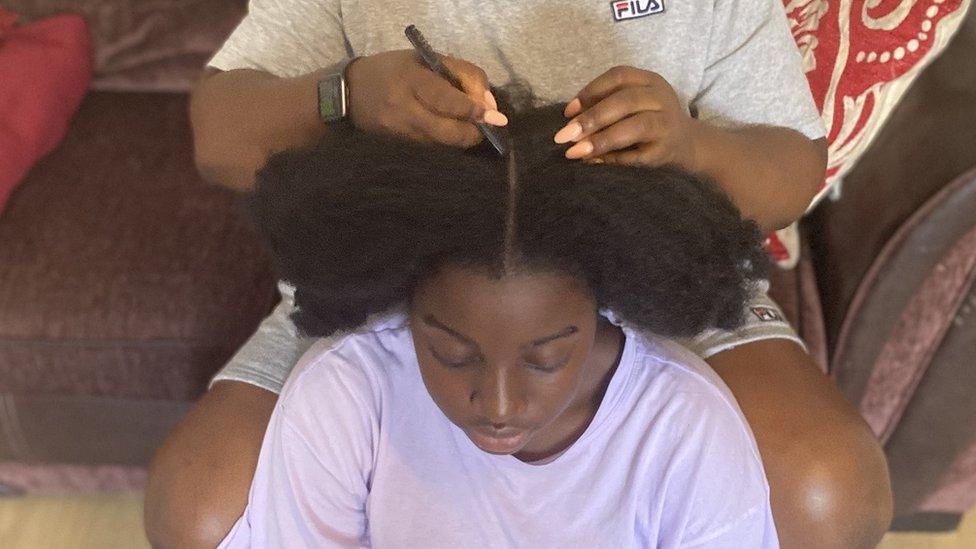BBC Young Reporter: 'Don't let gaming take control of you'
- Published
- comments

It can be easy to get carried away when you really enjoy playing games, but Luke has learned the hard way about the temptations of online gaming.
The 12-year-old says he got addicted and ended up spending £200 on his dad's money on in-game purchases.
He lied about his problem but eventually his parents found out and had to pay back the money he had spent.
Now he is trying to control his gaming and warn other children about the dangers of too much gaming.
He said: "I'm now determined to tell others so they don't repeat the mistakes I've made. Nobody warned me."

Luke's story
Luke tried to limit the amount of time he was gaming a day but found he was getting so involved he was losing track of time and ended up spending hours a day on it.
He said: "I told myself time and time again that I would just go on for 20 minutes before homework which turned into an hour, two hours, three hours and so on."
He started lying to his parents and buying skins, wraps and accessories inside the games which was being charged to his dad's credit card.
"I know what it's like to be sneaky to your parents, tell lies and hide secrets. I knew it wasn't right but I couldn't stop myself. I was addicted," he added.
My parents trusted me! But I was letting myself and them down.
Eventually his family found out and he was banned from gaming for six months, and had to do chores to pay his mum and dad back.
Luke now feels that he has learnt his lesson and wants to help other people to control their gaming.
He said: "Gaming is not real. While it's fun it can so easily become addictive if not controlled. You take control - don't let gaming take control of you."
What advice does Luke want to give to others?
Set an alarm for a set amount of time and come off when the alarm goes off even it you haven't finished the game.
Don't be tempted to spend money that's not yours, remember money spent in the game is real money coming out of someone's account.
Parents should make sure their bank cards aren't linked to games or should turn off in-game purchases if that is an option.
If you are at all worried about gaming or any of the issues that you've read in this article, there are lots of places that you can go to for support. You can speak to an adult that you trust like a relative or a teacher. BBC's Own It have an article on keeping gaming fun and advice about who you can speak to if you're worried you might need help with an addiction.
- Published6 October 2022

- Published2 November 2022

- Published10 October 2022

- Published10 November 2022

